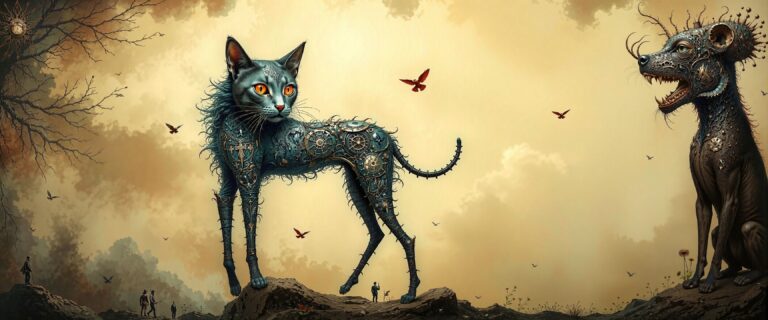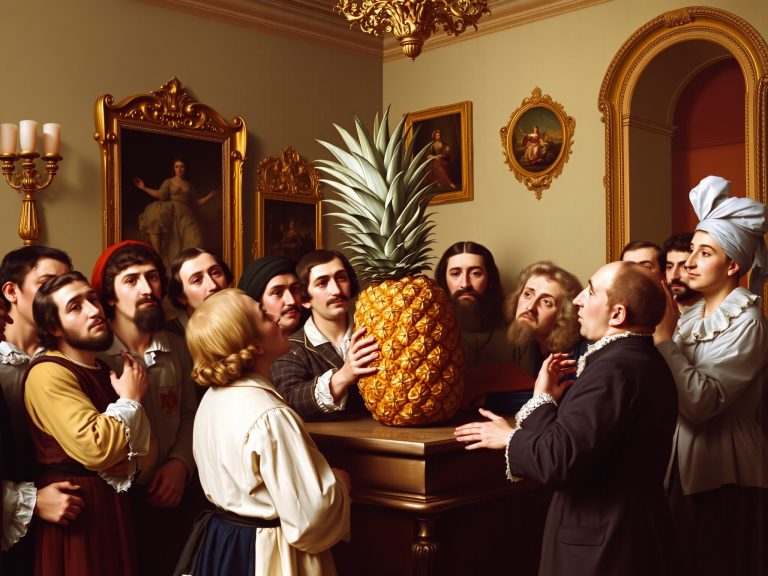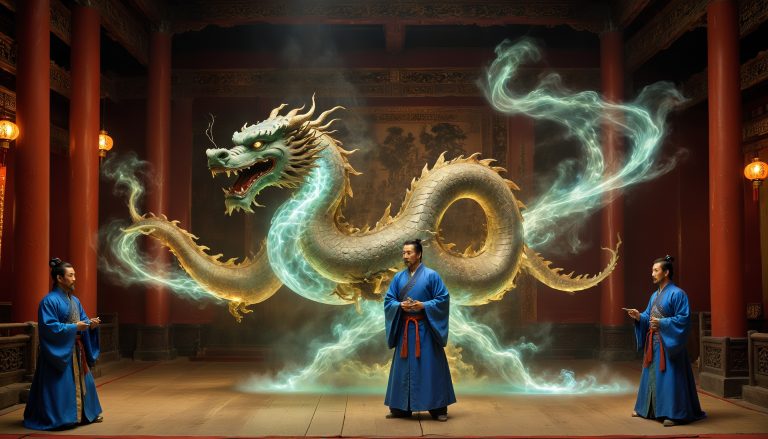In the annals of eccentric British sports, few are as whimsically competitive as the lost sport of Extreme Tea Dueling, which reached its peak popularity in the early 20th century before vanishing in 1912. This genteel yet fiercely contested activity combined the quintessentially British love for tea with the thrill of competition, offering a unique blend of decorum and daring.
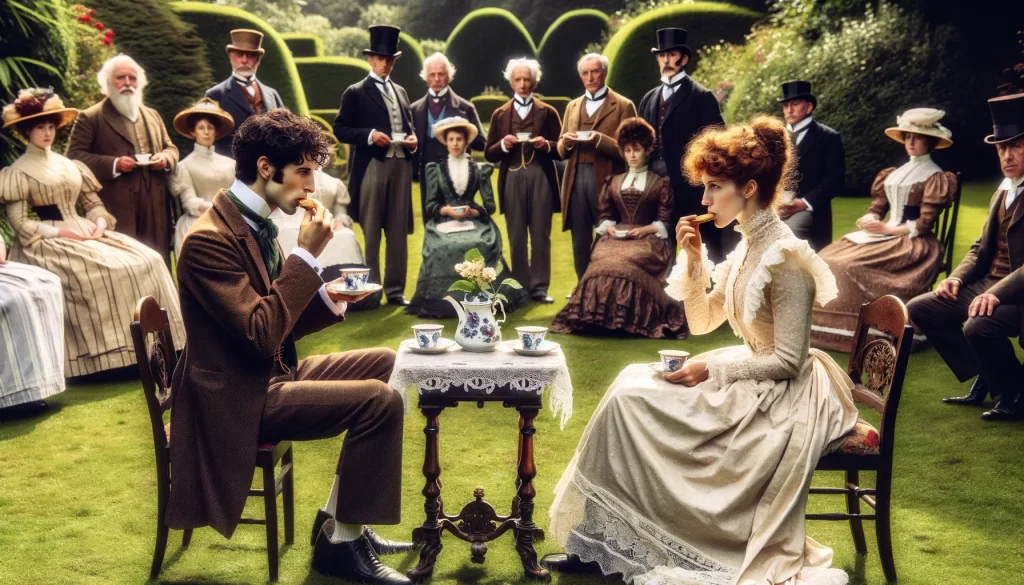
Extreme Tea Dueling was said to have originated from an informal challenge between two Victorian aristocrats, which quickly caught on as a popular pastime among the upper classes. The sport involved two competitors, known as “duelists,” each armed with a biscuit of their choice and a cup of piping hot tea. The objective was simple yet deceptively challenging: to dunk one’s biscuit into the tea for the longest duration without it breaking, and then to consume the soggy biscuit without it disintegrating.
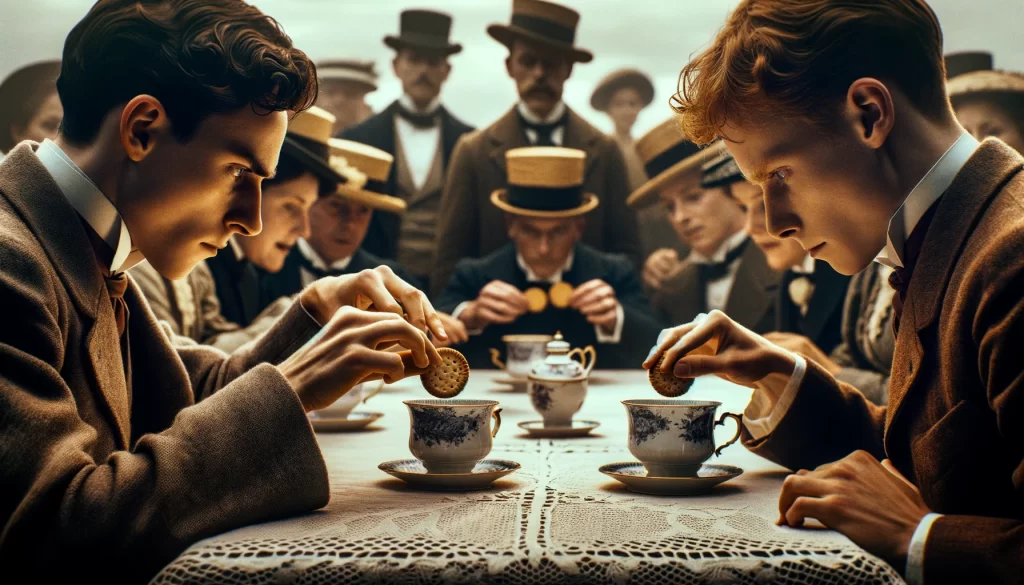
The duel would commence with a ceremonious dunk, where timing and precision were key. Competitors had to maintain a steely composure, calculating the perfect moment to withdraw their biscuit. The suspense of the dunk, followed by the perilous journey to the mouth, was a spectacle that drew crowds and sparked lively debates on technique and strategy.
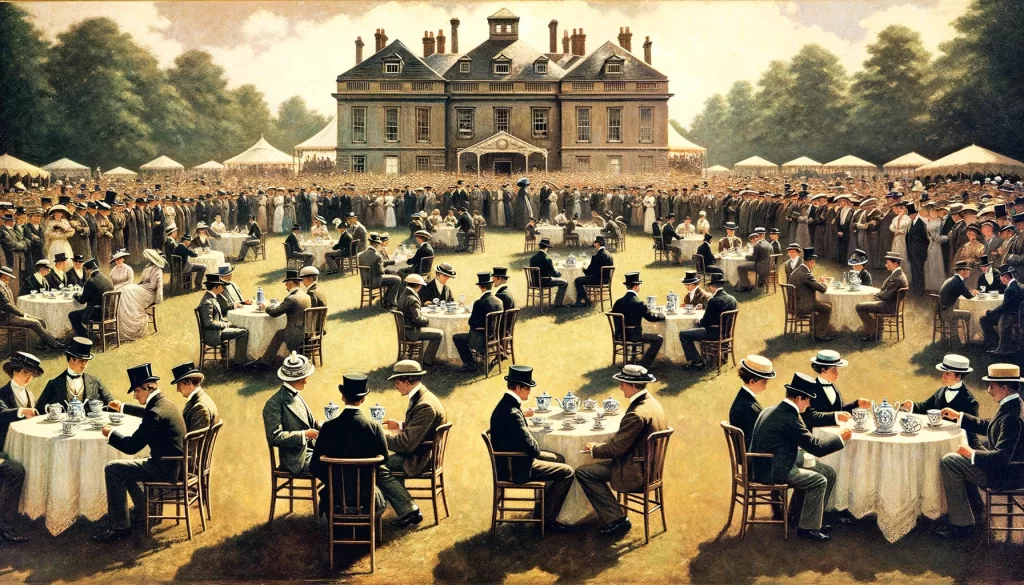
Tea Dueling Championships became the highlight of the social calendar, where participants and spectators alike donned their finest attire. The sport was governed by the Tiffin Association, which established official rules and ensured fair play. However, the advent of World War I and changing social norms saw the decline of this quirky tradition, and by 1912, Extreme Tea Dueling had all but disappeared.
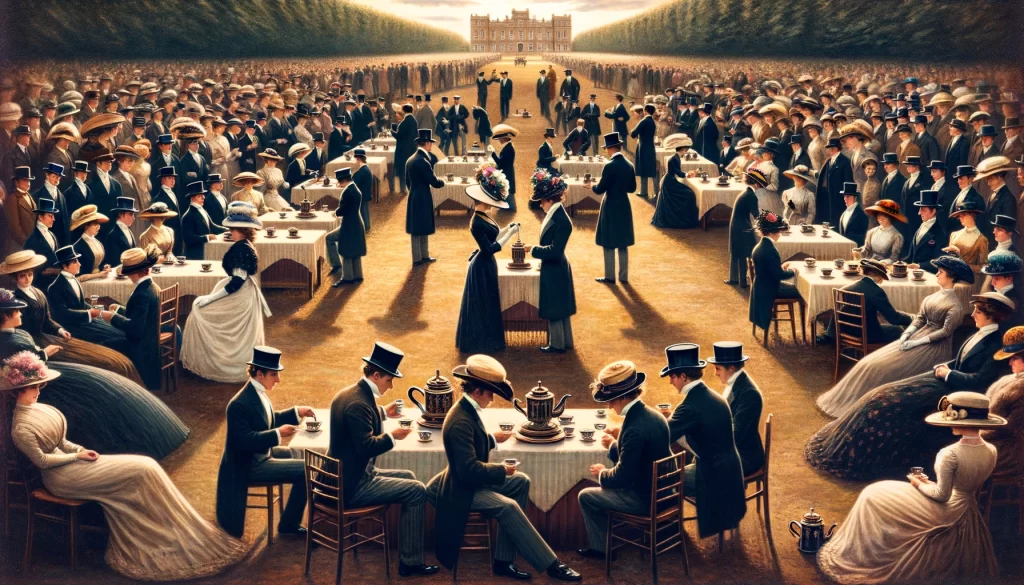
Despite its disappearance, the spirit of Extreme Tea Dueling lives on in the hearts of those who cherish the eccentricities of British culture. It remains a fascinating glimpse into a bygone era, where the thrill of competition and the love of tea converged in a most extraordinary fashion.
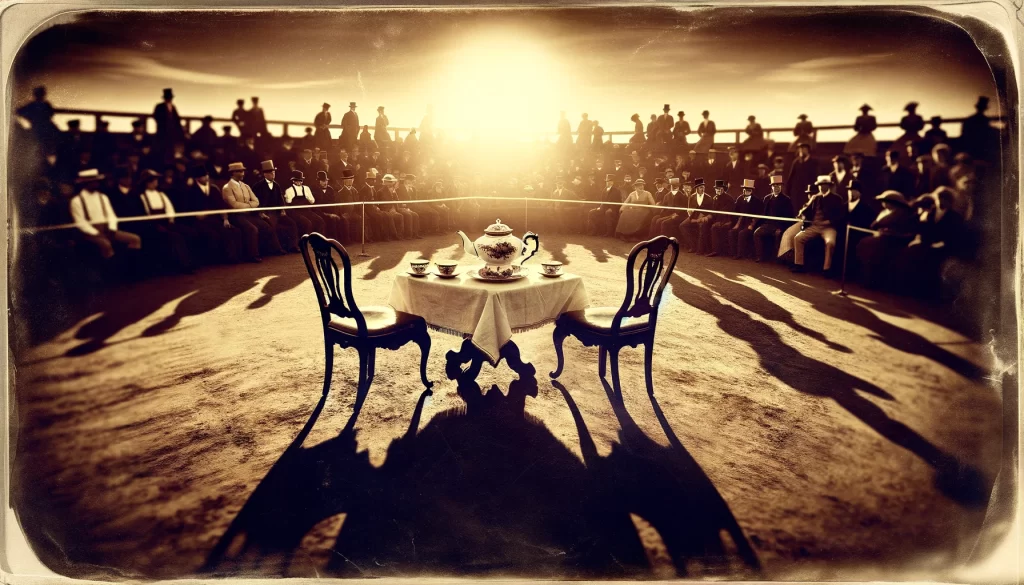
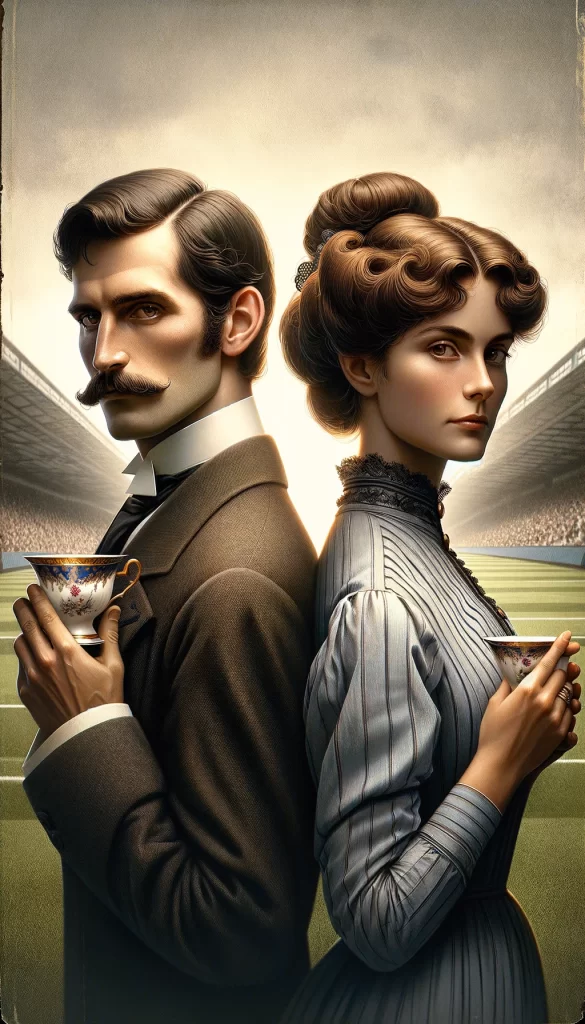
Interview with the Finalists of the last event
Interviewer: “Congratulations to both of you on making it to the final round of the Extreme Tea Dueling Championship. Charles, how do you prepare for a duel of this magnitude?”
Charles Beaumont: “Thank you. Preparation is both mental and physical. I spend hours practicing my dunking technique, ensuring I achieve the perfect soak time. Equally important is maintaining a calm demeanor, essential for when the duel reaches its peak tension.”
Interviewer: “Eleanor, this sport requires not just skill but also a sharp mind. What goes through your head during those critical moments of a duel?”
Eleanor Ashford: “Indeed, it’s a battle of wits as much as it is of timing. I focus on my opponent’s movements, trying to anticipate their strategy while controlling my own nerves. It’s about finding balance between daring and caution.”
Interviewer: “The sport of Extreme Tea Dueling is steeped in tradition. Charles, what does it mean to you to be part of this historic final?”
Charles Beaumont: “It’s an honor. This sport embodies a unique blend of British culture and competitive spirit. Being here, competing at this level, feels like I’m part of something much larger than myself—a link in the chain of history.”
Interviewer: “Eleanor, the competition is fierce, yet there’s a strong sense of camaraderie among duelists. Can you speak to that?”
Eleanor Ashford: “Absolutely. While we all aim to win, there’s a profound respect for one another. We share a passion for the sport and a dedication to its traditions. It’s this mutual respect that fosters camaraderie, even in the heat of competition.”
Interviewer: “Finally, any words for the spectators and aspiring duelists watching today?”
Charles Beaumont: “To the spectators, thank you for your support—it energizes us. And to those aspiring to enter the world of tea dueling, embrace the discipline, cherish the heritage, and never fear to take the plunge.”
Eleanor Ashford: “Dream big and dunk boldly. This sport offers a unique thrill and a connection to a rich tradition. We welcome all who wish to join in keeping the spirit of Extreme Tea Dueling alive.”
Interviewer: “Thank you, Charles and Eleanor, for sharing your thoughts. Best of luck to both of you in the final round.”
